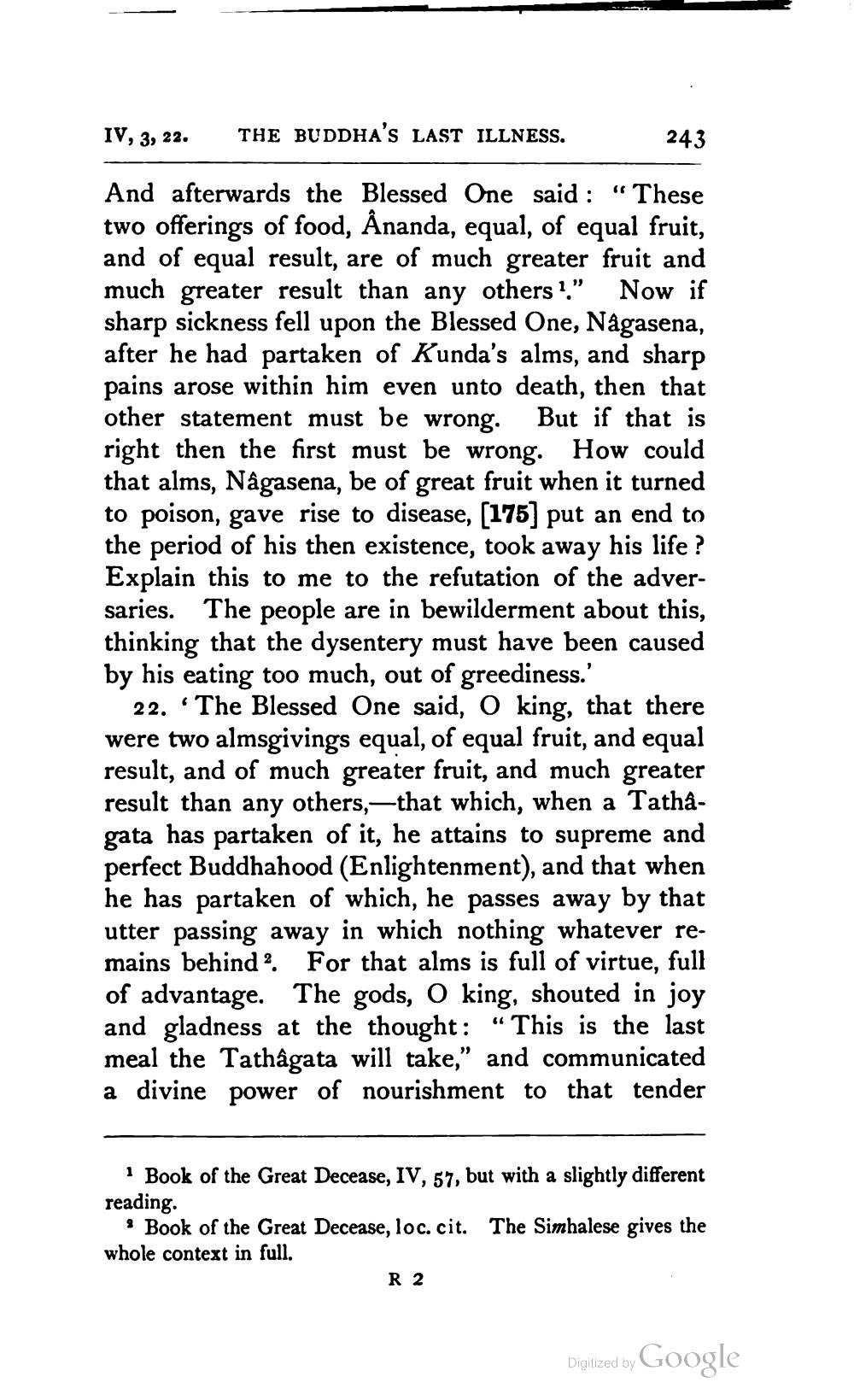________________
IV, 3, 22.
THE BUDDHA'S LAST ILLNESS.
243
And afterwards the Blessed One said: “These two offerings of food, Ånanda, equal, of equal fruit, and of equal result, are of much greater fruit and much greater result than any others ?." Now if sharp sickness fell upon the Blessed One, Nagasena, after he had partaken of Kunda's alms, and sharp pains arose within him even unto death, then that other statement must be wrong. But if that is right then the first must be wrong. How could that alms, Nagasena, be of great fruit when it turned to poison, gave rise to disease, (175] put an end to the period of his then existence, took away his life? Explain this to me to the refutation of the adversaries. The people are in bewilderment about this, thinking that the dysentery must have been caused by his eating too much, out of greediness.'
22. “The Blessed One said, O king, that there were two almsgivings equal, of equal fruit, and equal result, and of much greater fruit, and much greater result than any others,—that which, when a Tathagata has partaken of it, he attains to supreme and perfect Buddhahood (Enlightenment), and that when he has partaken of which, he passes away by that utter passing away in which nothing whatever remains behind . For that alms is full of virtue, full of advantage. The gods, O king, shouted in joy and gladness at the thought: “This is the last meal the Tathāgata will take," and communicated a divine power of nourishment to that tender
· Book of the Great Decease, IV, 57, but with a slightly different reading.
• Book of the Great Decease, loc. cit. The Simhalese gives the whole context in full.
R2
Diglized by Google




